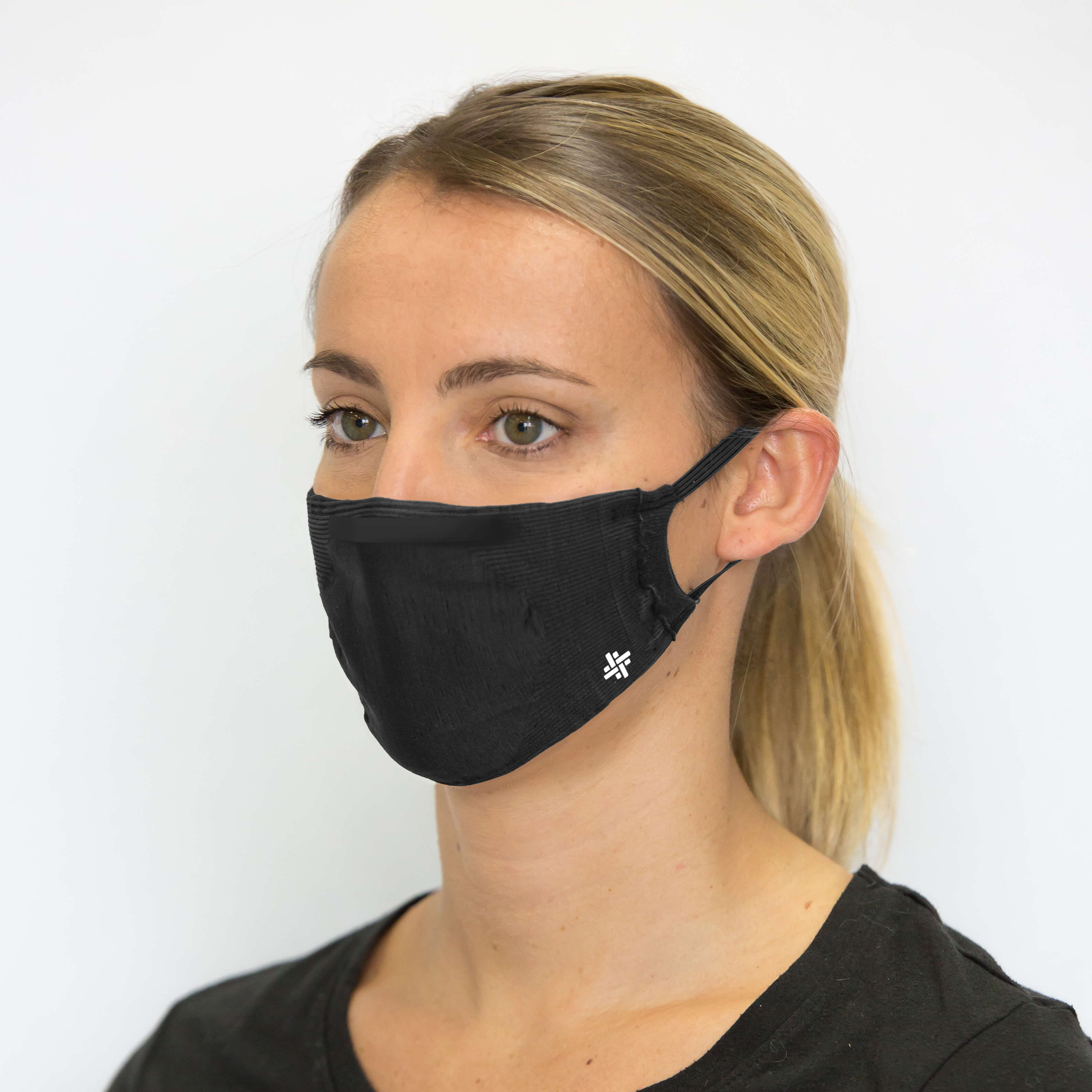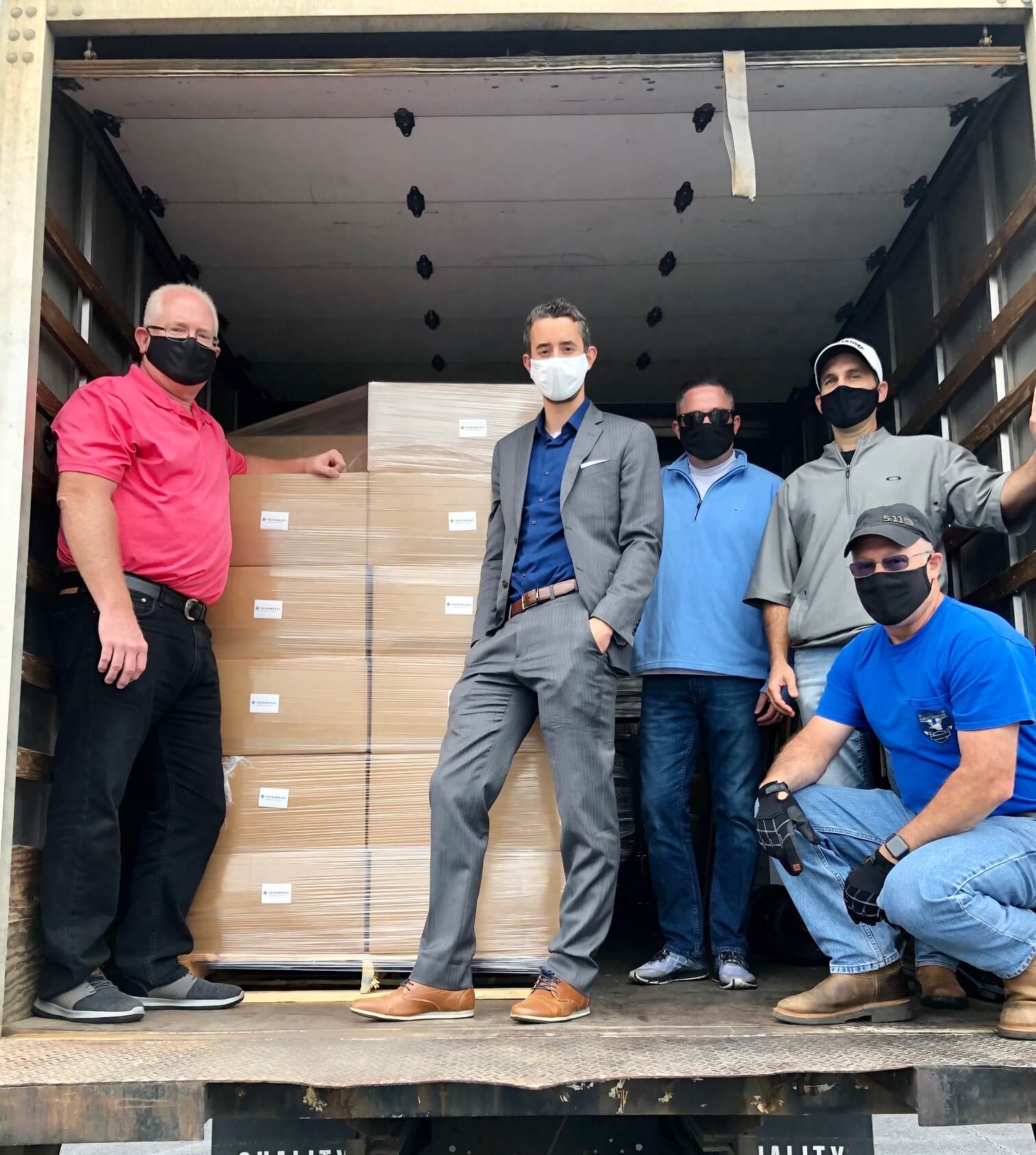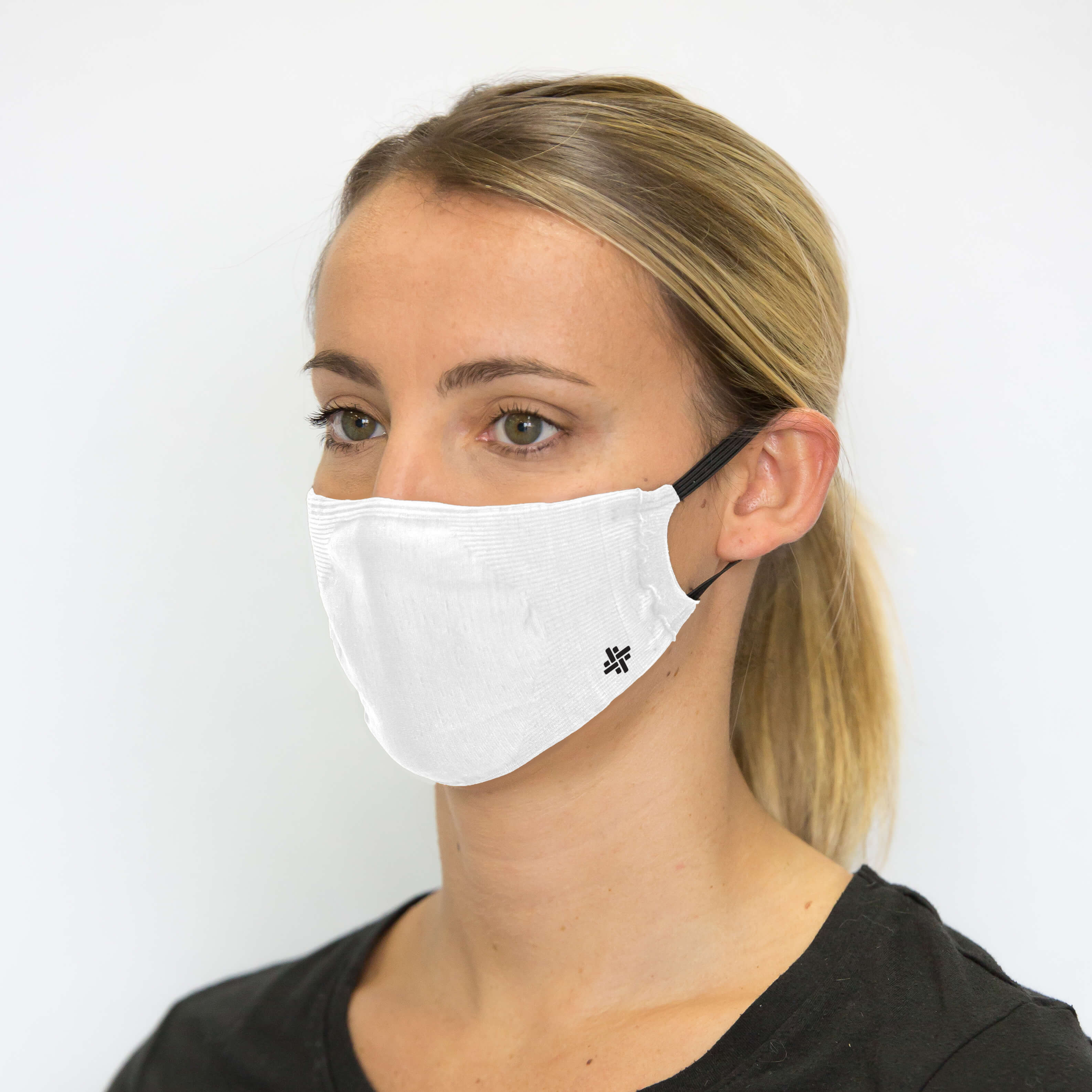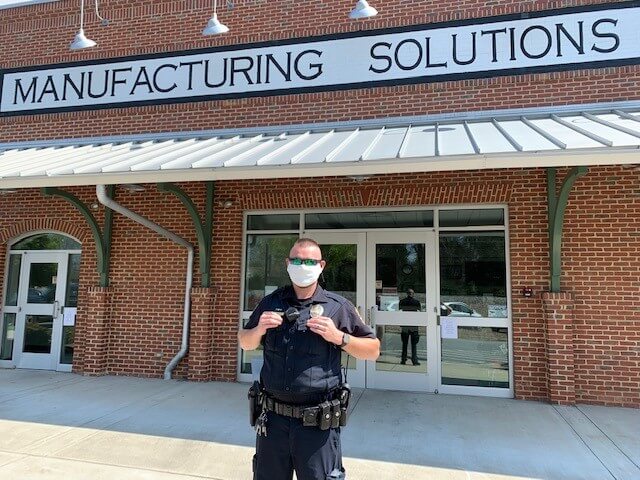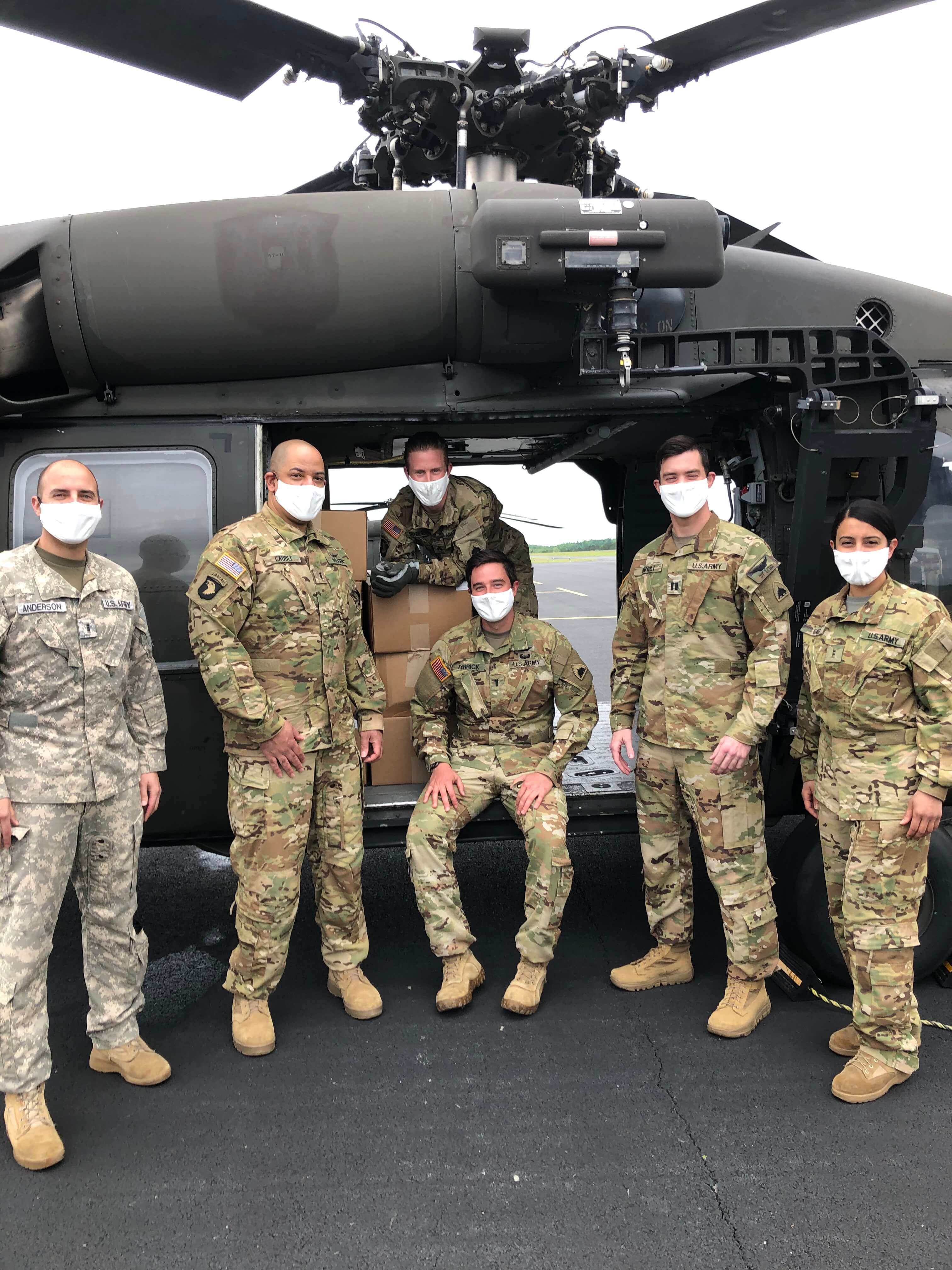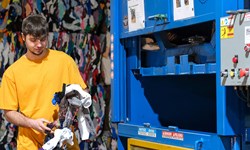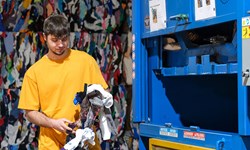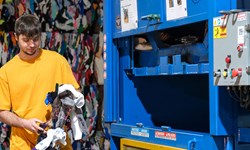The biomaterials company has brought together the North Carolina textile industry to produce face masks under its new division, TheraMasks. CEO of Nufabrx, Jordan Schindler, tells Fiona Haran more about it.
Companies across the textile supply chain have really stepped up during the Covid-19 pandemic by shifting their core production to face masks and other medical PPE to help tackle the disease.
For North Carolina-based Nufabrx, a proprietary biomaterial company that seamlessly embeds active ingredients including vitamins, supplements, and medications into fabrics, this was a particularly speedy transition thanks to its knowledge of health-wear products and its industry contacts. In fact, by pooling the expertise of several local businesses, including Bossong Medical and Manufacturing Solutions Center, the company has created a new line of reusable copper masks called TheraMasks.
According to Nufabrx, the masks are designed to help reduce the spread of germs through the naturally antibacterial benefits of CuTEC copper; the fabric helps to create a healthier environment for the wearer and reduce facial contamination. The products are durable enough to be machine washed and dried for 30 washes, making them an environmentally friendly alternative to single-use disposable masks. What’s more, they have been tested for antibacterial (AATCC 100), bacterial filtration efficiency (BFE) and viral filtration efficiency (VFE) – the data is publicly available on the company’s website.
Explaining the decision behind the new venture, Jordan Schindler, CEO of Nufabrx, says: “Being in the advanced materials space, we felt uniquely qualified to try to help in the PPE market opportunity.
“We started this in late February/early March as a response to government officials and first responders reaching out and asking for masks. I think part of the crisis here is with N95 masks and other disposable options that doctors throw out after each patient; they’re utilising 10-15 of these a day. And so, we created a reusable antimicrobial copper mask – the premise being that you wear it throughout the day and then you wash it.
“Based on our positioning here in North Carolina, where we’re co-located with a third-party testing lab (Manufacturing Solutions Center), we felt we could make a difference.”
Mask production
The masks are produced on converted Santoni knitting machines by a team of local knitters and sewers at an ISO-certified and FDA-registered facility. They are currently being used by hospitals, New York police and fire departments, Catawba County EMS, police, fire, and county officials. The company says it is sending them out by overnight delivery ‘as quickly as we can make them’.
“Right now, we’re producing 250,000 a week,” says Schindler. “We’re trying to get up to 300-400,000 a week. It’s all been a team effort, that’s for sure, to make as many as we can. There’s a human tragedy component to all this – whatever we can do to help we want to be able to participate in that.”
The company also plans on extending its products to a wider audience. “We prioritised first responders and government officials, but we are also offering them to general consumers,” says Schindler. “So, for example, elderly care facilities, nursing homes, people who are struggling to leave their house that still have to go grocery shopping. And, as we see this crisis extend, all of these businesses are coming back to work whether it’s your retail workers, hairdressers, or restaurant workers – they’re all going to need masks.
“We’re looking at how we create that product as well, to be able to support people that are probably in contact with more people than hospital workers.”
Besides its partnership with Bossong Medical and Manufacturing Solutions Center – both of which it has worked with previously on the production of compression socks and knee sleeves – Nufabrx also called on several other local businesses, from furniture suppliers to hosiery producers, to make different components for the masks. The support offered by the new venture has thus been two-fold, as Schindler explains.
“Our team has grown 50% in the last two weeks,” he says. “We have hired new people to be able to support the effort. We have been able to bring back a lot of jobs from manufacturing companies … you’re talking hundreds of knitters and sewers to help support and make masks, which is a great component of this story.”
“You have this huge rise in unemployment,” he continues, “but the US textile industry has stepped up to be able to fill some of that gap to build and promote masks to help support those that need it the most. We’ve been very fortunate that we’ve been able to hire and bring people back.”
Another convenient element of the production is that CuTEC, who supplies the copper for the masks, is also located nearby. “Fortunately, they’re 10 minutes down the road from us in North Carolina; it’s totally an ecosystem thing,” says Schindler, who adds that the partnership is strengthened by CuTEC’s wealth of experience.
“They have a lot of pre-existing data on the efficacy of copper versus different bacteria and viruses,” he says. “I think a lot of people have jumped on the bandwagon with the topical finishes that are added, but the copper we use is built into the fibre so that it doesn’t leach out of the yarn; it’s adherent throughout the wash cycle. We’ve done 30 washes – there’s no decrease in performance.
“That’s why we went with a well-known industry leader who’s been around for 20 years and who has the data to support it.”
Despite all efforts currently going into the mask production, Schindler says that Nufabrx is still keeping a finger on the pulse of its core biomaterial platform.
“In the midst of all this, we had a nationwide rollout of our core products across 4,000 Walmart stores, so we have to continue to support that programme while trying to make an impact on the masks side,” says Schindler.
“I think retail sales have certainly slowed as well, so it has allowed us to focus our efforts on the masks.”
Garnering interest
The company has certainly seen a lot of demand for its masks. In fact, it recently announced that the D.C National Guard had ordered Black Hawk helicopters to the Asheboro Regional Airport to transport 250,000 of the masks in response to the Covid-19 pandemic. Besides this, Schindler says the products have also established a celebrity following, with American celebrities such as Sarah Hyland and Selma Blair giving them their seal of approval.
A lot of the positive feedback stems from the company’s customer service, according to Schindler.
“We deliver every single order on time and never miss an order,” he says. “I think that’s not true for a lot of the industry, but we have a lot of repeat customers. The government has just ordered another couple of hundred thousand masks – all of our customers seem to really like it. People genuinely think it’s a comfortable mask. If you’re going to wear it all day, it has to be that.
“Our take is if you don’t like it we’ll take it back and donate it – it’s a very open policy. We all try to chip in where we can to help and support.”
Outlining the next steps for the company, Schindler hopes to be able to combine his core business with the new masks venture.
“Masks is a great example of what our company can do in terms of smart fabrics,” he says. “So, we’re looking at incorporating active ingredients directly into the masks, whether it’s a moisturiser or something that’s good for your skin. There’s this whole consumer behaviour where people don’t like wearing masks, but lots of people wear [cosmetic] face masks for their skin, so why not marry the two together to create a new product?”
To learn more about TheraMasks, visit www.TheraMasks.com
Have your say. Tweet and follow us @WTiNcomment

